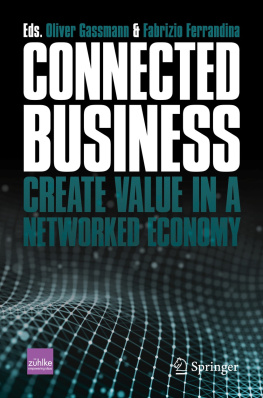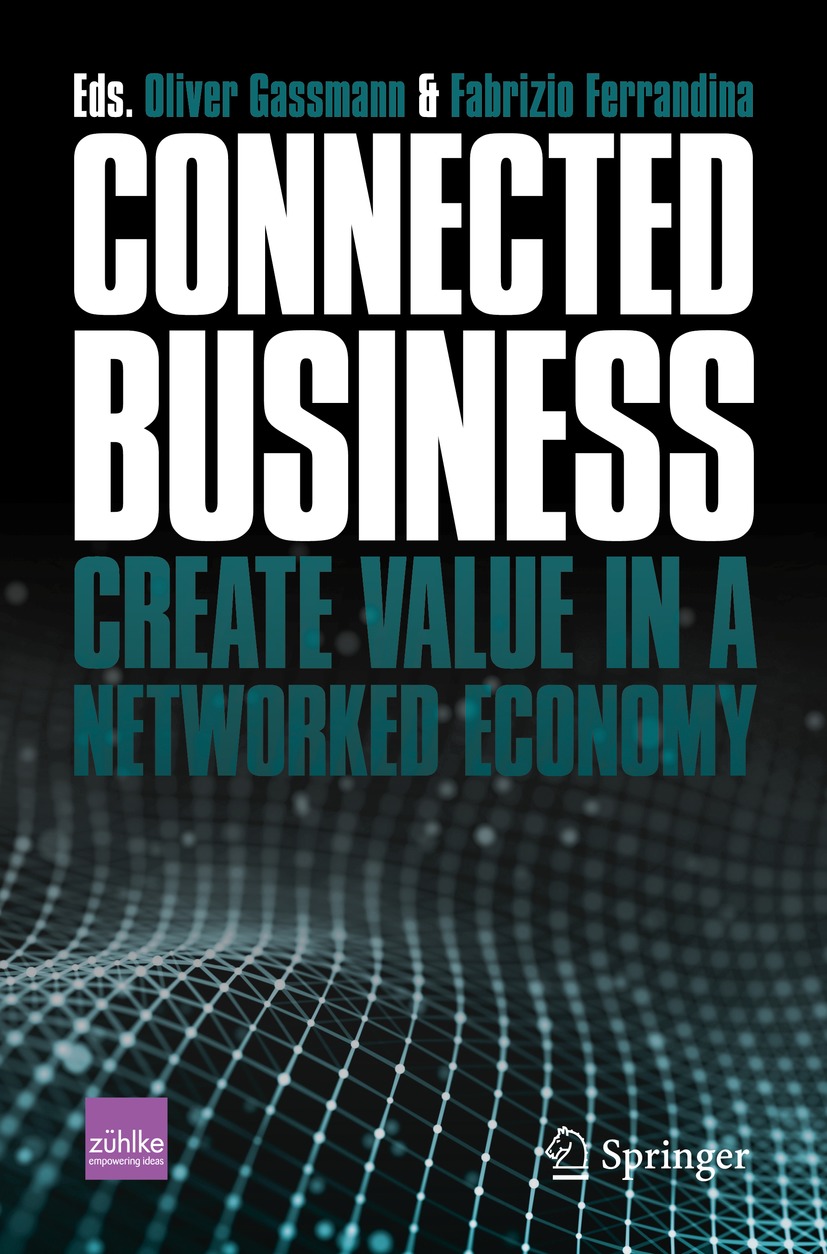Editors
Oliver Gassmann
ITEM-HSG, University of St. Gallen, St. Gallen, Switzerland
Fabrizio Ferrandina
Zhlke Engineering, Zhlke Group, Eschborn, Germany
ISBN 978-3-030-76896-6 e-ISBN 978-3-030-76897-3
https://doi.org/10.1007/978-3-030-76897-3
The Editor(s) (if applicable) and The Author(s), under exclusive license to Springer Nature Switzerland AG 2021
This work is subject to copyright. All rights are solely and exclusively licensed by the Publisher, whether the whole or part of the material is concerned, specifically the rights of translation, reprinting, reuse of illustrations, recitation, broadcasting, reproduction on microfilms or in any other physical way, and transmission or information storage and retrieval, electronic adaptation, computer software, or by similar or dissimilar methodology now known or hereafter developed.
The use of general descriptive names, registered names, trademarks, service marks, etc. in this publication does not imply, even in the absence of a specific statement, that such names are exempt from the relevant protective laws and regulations and therefore free for general use.
The publisher, the authors and the editors are safe to assume that the advice and information in this book are believed to be true and accurate at the date of publication. Neither the publisher nor the authors or the editors give a warranty, expressed or implied, with respect to the material contained herein or for any errors or omissions that may have been made. The publisher remains neutral with regard to jurisdictional claims in published maps and institutional affiliations.
This Springer imprint is published by the registered company Springer Nature Switzerland AG
The registered company address is: Gewerbestrasse 11, 6330 Cham, Switzerland
Preface
Software is eating the world, this statement has become a matter of course, but is this still valid in a global networked business setting? Most valuable companies such as Google, Amazon, Facebook, Apple, Microsoft, Alibaba, and Tencent owe their success to connected rather than standalone software. These star companies are the ones that get the headlines but thousands of innovative companies in practically every industry have been busy making the transformation to smart and connected products and processesfrom cars, machines, tools, and consumer products to digital pills. As part of the digitalization process, most innovative companies are jumping into the Internet of Things (IoT) , which has emerged from smart products and is now evolving through the Artificial Intelligence (AI) revolution and new business models into the Economy of Things (EoT).
The potential of connected business based on IoT is huge. Currently, it is estimated that there are 25 billion connected devices worldwide; by 2030, this number is expected to rise to 50 billion. Today, everything creates enormous amounts of datafor example, a premium car generates up to 25 Gbytes/h. Of all the available data in todays world, 90% has been created within the last 2 years. Whether it is products, processes, things, humans, or companies, we are witnessing an exponential development in connectivity. Everybody wants to participate in the networked economy .
But success is not equally distributed. It is not enough to add IoT to your products, to digitalize your processes, or to create digital twins. Many companies fail and that includes several large technology companies. GE Digitals investment of billions of dollars in its IoT platform ended in a disaster; Siemenss Mindsphere platform did not deliver the expected results; Fords new division, Smart Mobility , strayed too far away from the companys core business and consequently failed; P&G intended to become the the most digitally enabled company in the world but was let down by its unfocussed approach; Daimler, Audi, and Volkswagen have been catching up with Tesla in connected cars but still have major challenges ahead. The failure of hundreds of connected business initiatives has been obfuscated by business cases that have been grandiosely embellished. The truth of the matter is that companies fell for the hype of a new technology without understanding fundamental customer needs and the real essence of the business value they hoped to create.
Many years of research and experience in strategic projects for clients worldwide in dozens of industries have taught us one thing: the key to all connected business initiatives, without exception, is to create and capture business value . This is certainly true for every initiative, connectivity intrinsically allows a large amount of underlying business models, though. To avoid ineffectual investments, it is therefore all the more important to identify a priori those ones with a high-value potential.
This book is all about how to create and capture business value in the networked economy for your customers, your partners in the ecosystem, and your own company. Many questions arise from its pursuit: What are the cornerstones of your new business model in terms of target customers, value proposition, supply chain architecture, and revenue model? How can you develop and orchestrate an ecosystem along the customer journey? How do you innovate business processes using end-to-end thinking? What are the success factors in developing multi-sided platforms? How can you use AI and machine learning for smart decision-making? How is it possible to create sustainable business models with a triple bottom-line impact for profit, people, and planet? How can companies use cybersecurity strategies to reduce the vulnerability of connected businesses? How should you tackle the digital transformers dilemma and address the old and the new S-curves at the same time? What are the most critical success factors in setting up experiments for connected business initiatives? What are the network specialities for patent strategy, scale-up metrics, and business models? What can we learn about success and failure from projects undertaken by the hidden champions among manufacturing companiesboth large multinationals and SMEsbeyond the triumphant stories of the glorious big five tech companies?
In order to address these questions, we asked leading authors from academia, consulting, and industry to share their knowledge and experience on how to create value in the networked economy . This book is divided into three parts:
Part I: Exploring the Networked Economy addresses the basic concepts and strategies of the networked economy , platform economics, ecosystems, sustainable AI, and IoT . Deep dives are taken into three essential industries such as health care, mobility, and industry 4.0.
Part II: Management Strategies for Connected Business focuses, at company level, on the digital transformers dilemma concerning the two S-curves, the power of business experiments and their practical criteria, success factors in driving connected business initiatives, the potential that AI and machine learning has for decision making in the connected business arena, cybersecurity strategies in networked companies, and patent strategies for players in the networked economy .






